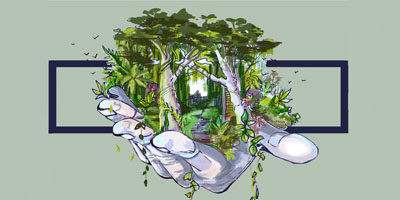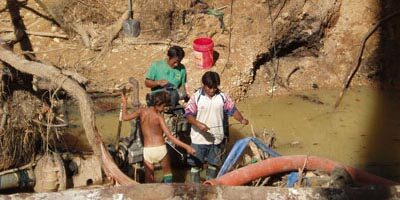 When the first session of the International Renewable Energy Agency (IRENA) was held in Abu Dhabi, United Arab Emirates, last year, I was already in the area and attended on behalf of the Social Justice Committee. IRENA is to be an independent, international agency run by countries who want to move into a future that doesn’t rely on nonrenewable energy sources like fossil fuels and nuclear energy.
When the first session of the International Renewable Energy Agency (IRENA) was held in Abu Dhabi, United Arab Emirates, last year, I was already in the area and attended on behalf of the Social Justice Committee. IRENA is to be an independent, international agency run by countries who want to move into a future that doesn’t rely on nonrenewable energy sources like fossil fuels and nuclear energy.
Much of the inspiration for IRENA came from the work of Hermann Scheer, a German politician, activist, writer and an outspoken advocate for renewable energy. Opposed to the fossil fuel and nuclear industries until his death in 2010, he tried to counter their message that a future powered by renewable energy is naïve and not possible, a path that will cause severe economic hardship and leave people freezing in the dark.
Founded in January 2009, IRENA now has more than 100 member countries, and 58 others have signed in support and/or applied for membership. Canada is not a member, and has not indicated support. We have not even reached the stage of thinking about developing our own national “energy road map,” a stage reached by many European countries thirty years ago.
However, it is exciting and comforting to realize that this conversation is taking place in so many other countries around the world. Plans are being drawn up for a transition to a renewable energy economy, in which the production of energy is more decentralized and people have more control over its consumption and sale.
Adnan Amin, from Kenya, is IRENA’s first director-general. Renewable energy is the only way to provide energy security and a “more stable, safer, cleaner and sustainable” world, he says. “In five years’ time, IRENA should be the hallmark in terms of renewable energy information, technology cooperation and facilitation, setting the standards that will facilitate the uptake of renewable energy globally.”
IRENA was deliberately not formed as a UN agency, wanting to be lean, efficient and transparent and to avoid excessive bureaucracy and the inaction. The hope is that IRENA will be a forum of action, positive thinking and collaboration. It will facilitate access to technical and economic data, share experiences on best practices and lessons learned, and assist with capacity-building and access to finance.
Many developing countries view renewable energy as perhaps the only way of providing energy access to their citizens, especially in remote areas. Jose Rene Almendras, Secretary of Energy for the Philippines, said that his motivation to reduce reliance on fossil fuel comes from the fact that “every time the price of fuel goes up, they burn my picture in the streets.”
Small countries, like Samoa, Grenada, Kiribati and Fiji, encourage affordable renewable energy because addressing climate change is a matter of survival for small island states. So IRENA is helping Tonga, for example, develop a ten-year plan for renewable energy.
As Hermann Scheer once argued, renewables are the only sensible way forward. “It is obvious that conventional energies will become more and more expensive over time, whereas the costs for renewables steadily decrease.”



